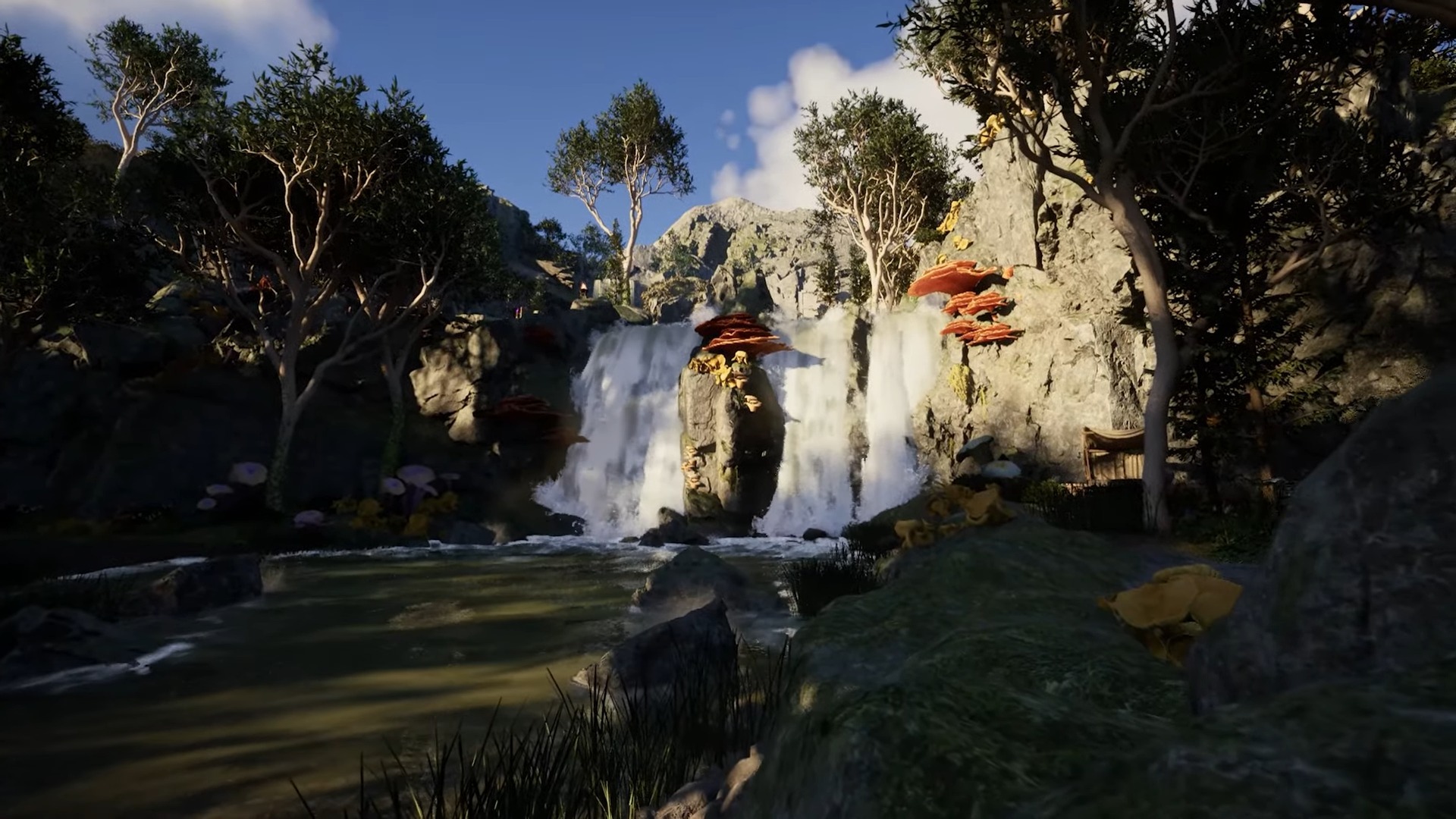Avowed's commitment to ubiquitous player choice could make it 2024's standout RPG: "At Obsidian, it's your world, your way, right?"
Interview | In combat, in questing, and in everything between, Avowed puts you at the heart of everything it does
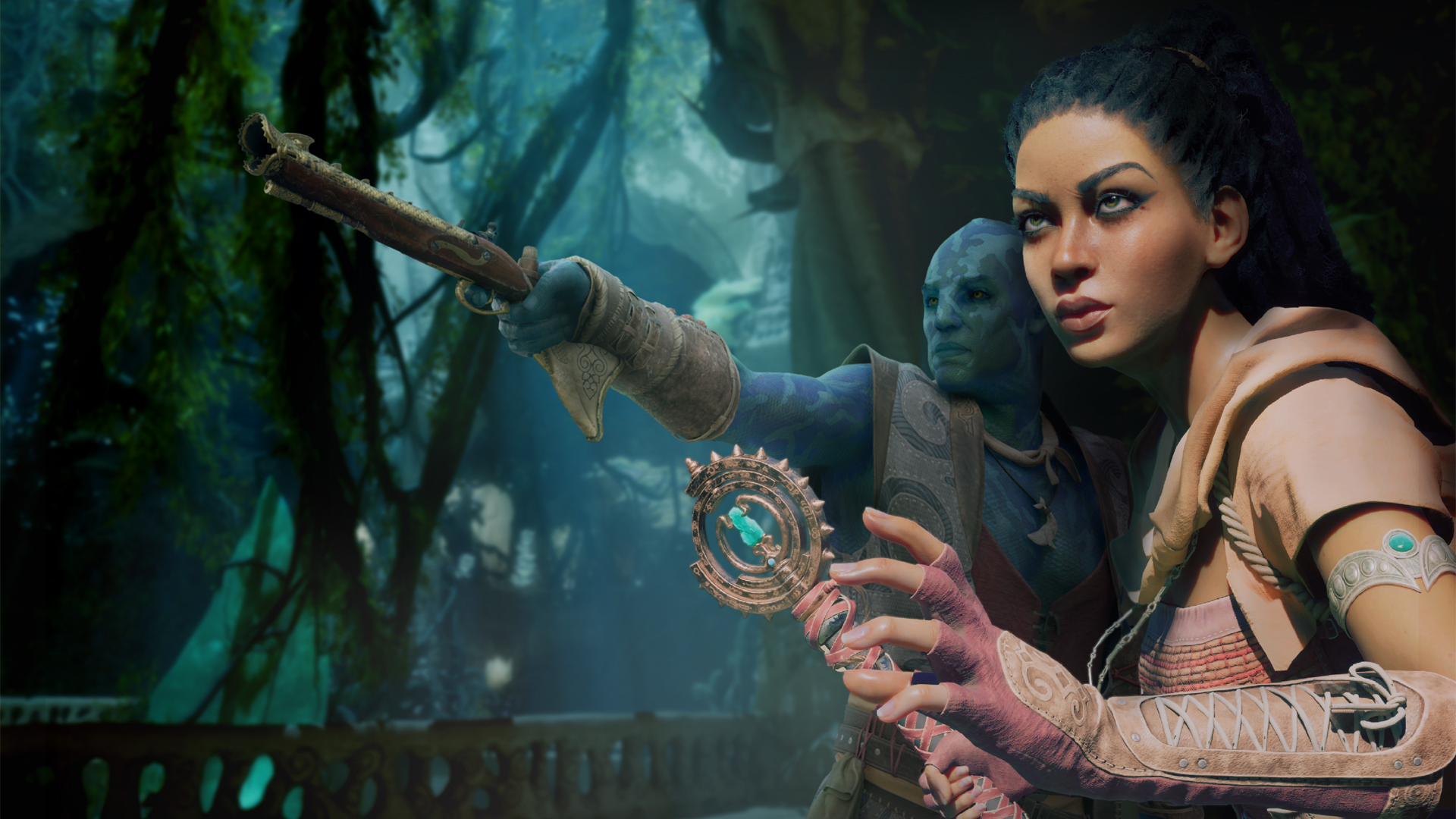
Avowed could change the face of the RPG genre. That's not to heap undue pressure on Obsidian Entertainment, the studio now lining up its latest venture under the Xbox Games Studios umbrella following 2018's high-profile acquisition. But if recent history has taught us anything in this space, it's that role-playing games can, and often do, make a splash when mixing the right ingredients.
2023 alone delivered some of the most unforgettable, genre-defining experiences we've seen in some time, with games like Baldur's Gate 3 and Sea of Stars helping to push the boundaries of what RPGs can, could, and maybe even should be moving forward. Player choice, in combat and narrative terms, was a driving force in last year's biggest success stories – and so with a studio so well-versed on both fronts at the helm of Avowed, the fantasy-with-firearms role-player already has a lot going for it. From Fallout: New Vegas to South Park: The Stick of Truth, The Outer Worlds, and the Pillars of Eternity series, after all, Obsidian is no stranger to leaving its mark on a tried and tested formula.
"Player choice is really key to all of our games at Obsidian," says Avowed game director Carrie Patel. "And for us, that is really about letting the player build and express their character. It's about who they want to be in the fantastical worlds we build, and the dilemmas and challenges we put in front of the player. I personally find that to be really effective in games where you have some sort of starting premise that prompts roleplay and gives you something to make difficult choices around."
Combat and "Combinatorics"
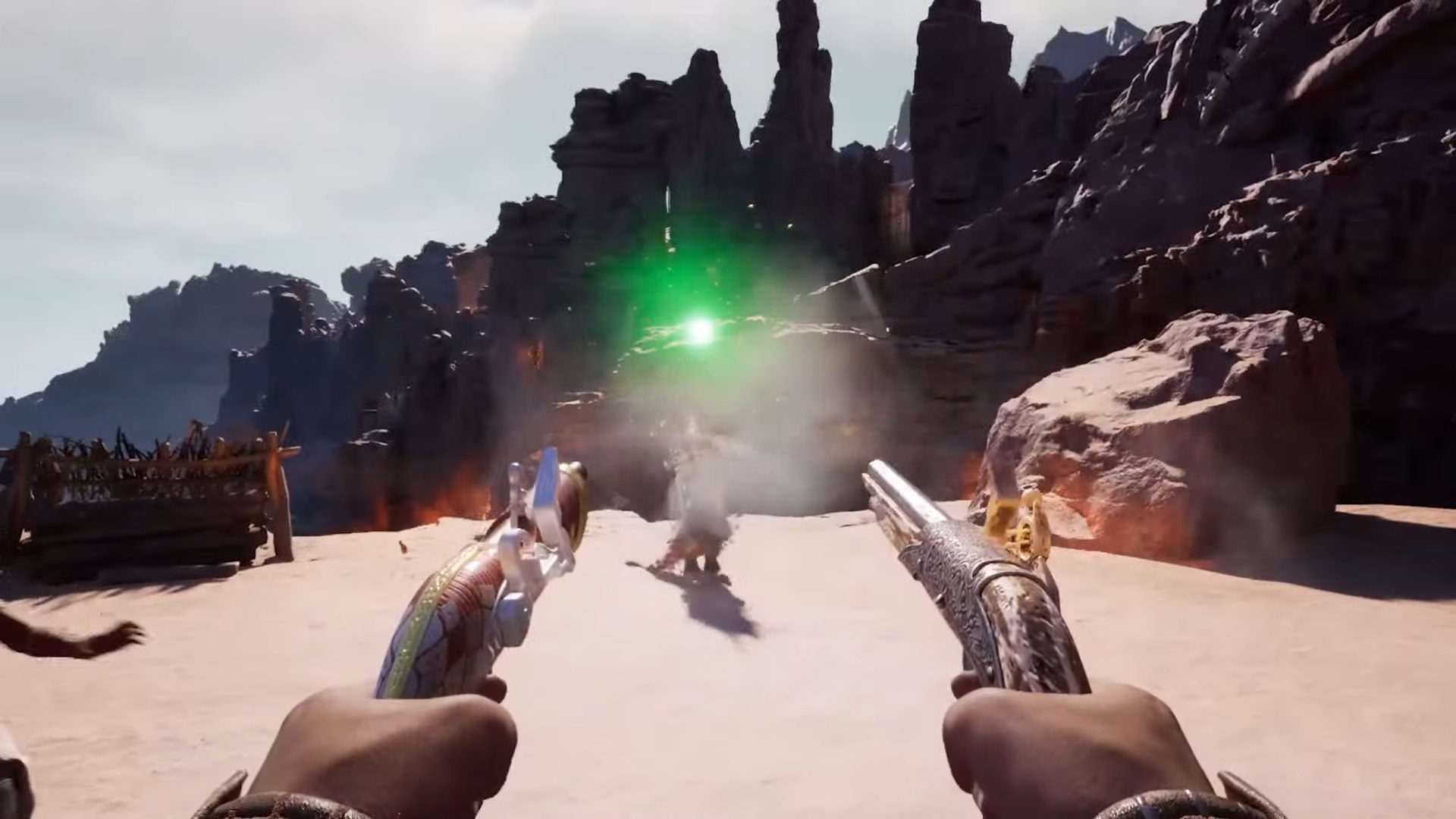
As a first-person, open-zoned action RPG, Obsidian brings years of experience to Avowed, with the game itself set in the fictional world of Eora, a realm first introduced in the studio's Pillars of Eternity series. Sent to the Living Lands to investigate a spreading plague, it becomes immediately clear there's more to the untamed island setting than meets the eye – not least an ancient blight that threatens to destroy the land and everything that inhabits it. In response, you'll wield swords, shields, guns and grimoires as you (and a band of recruitable companions) hack and slash and conjure spells in your bid to save the day.
A distinct focus on player choice underpins all of the above, which, of course, plays to Obsidian's expertise. The essence of this, Patel explains, is making the player constantly ask themselves: Who do I want to be? Be that in the face of the game's more thoughtful philosophical and political quandaries, or simply when working out the most logical conclusion to a questline, Avowed aims to systematically challenge your moral compass. Who can you trust? Where do your loyalties lie? Do you opt for altruism or are you in it solely for yourself? Who do you want to be?
This dynamic approach to player choice has natural appeal to newcomers, but anyone familiar with the developer's back catalog already has an idea of what to expect. Flirting with diplomacy is always an option in Obsidian games, but quite often things are settled by force in the throes of the studio's fantastical sprawls – and Avowed pays clear deference to the latter with a real-time mix-and-match approach to magic, melee, mid and long range combat.
"It's not about making every single weapon powerful, but there are trade-offs to each weapon".
Gabe Paramo, Avowed gameplay director
"At Obsidian, it's your world, your way, right?" says gameplay director Gabe Paramo. "We want to give the player the freedom with the dual wielding system. You know, with combinations – or 'combinatorics' as I call it; people make fun of me for using this term. It's being able to put a pistol in my right hand and a shield in my offhand. I'm blocking and I'm firing. It's the choice and consequence with things like, I'm using a dagger that's quick and it's more silent, and I'm using a pistol that's loud and has a little bit of a reload recovery time on it. It's giving the players these tools that let them sort of choose okay, 'what do I want to do here?' And there's pros and cons to all the choices that I make and there is no one perfect build, there's gonna be, again, choice and consequence for what you kit out with your character."
Sign up to the GamesRadar+ Newsletter
Weekly digests, tales from the communities you love, and more
To this end, Obsidian aims to increase the fluidity of this choice in combat by allowing you to respec your character at any time. The overarching aim here is to help you avoid feeling locked into any particular fighting style, and likewise allow you to adapt in the face of new challenges. Environmental obstacles encourage Skyrim-esque ingenuity, whereby fire magic may be required to melt ice or burn through brambles blocking the way, or where heavy weapons are needed to break through barriers. When you combine all of this with the split-second decision-making that's required in the heat of battle, the multifaceted importance of choice in Avowed becomes crystal clear.
"We put a lot of energy and time into our animation blending systems, too," Paramo continues. "Shout out to Max Matzenbacher, our senior combat designer, for what he calls 'bookends', which are just your range of giving things space. So, it's not about making every single weapon powerful, but there are trade-offs to each weapon, like the wind-up time versus the recovery time, making them feel like you're holding them properly, and what they look like in view."
"So, again, I think a lot of the challenges are just the permutations and creating the design that actually cannot over-bloat our animations and still be very flexible. [On our end] it's about ensuring player freedom, making sure the game looks good enough, and fits within the budgets that we have."
Standing on the shoulders of giants
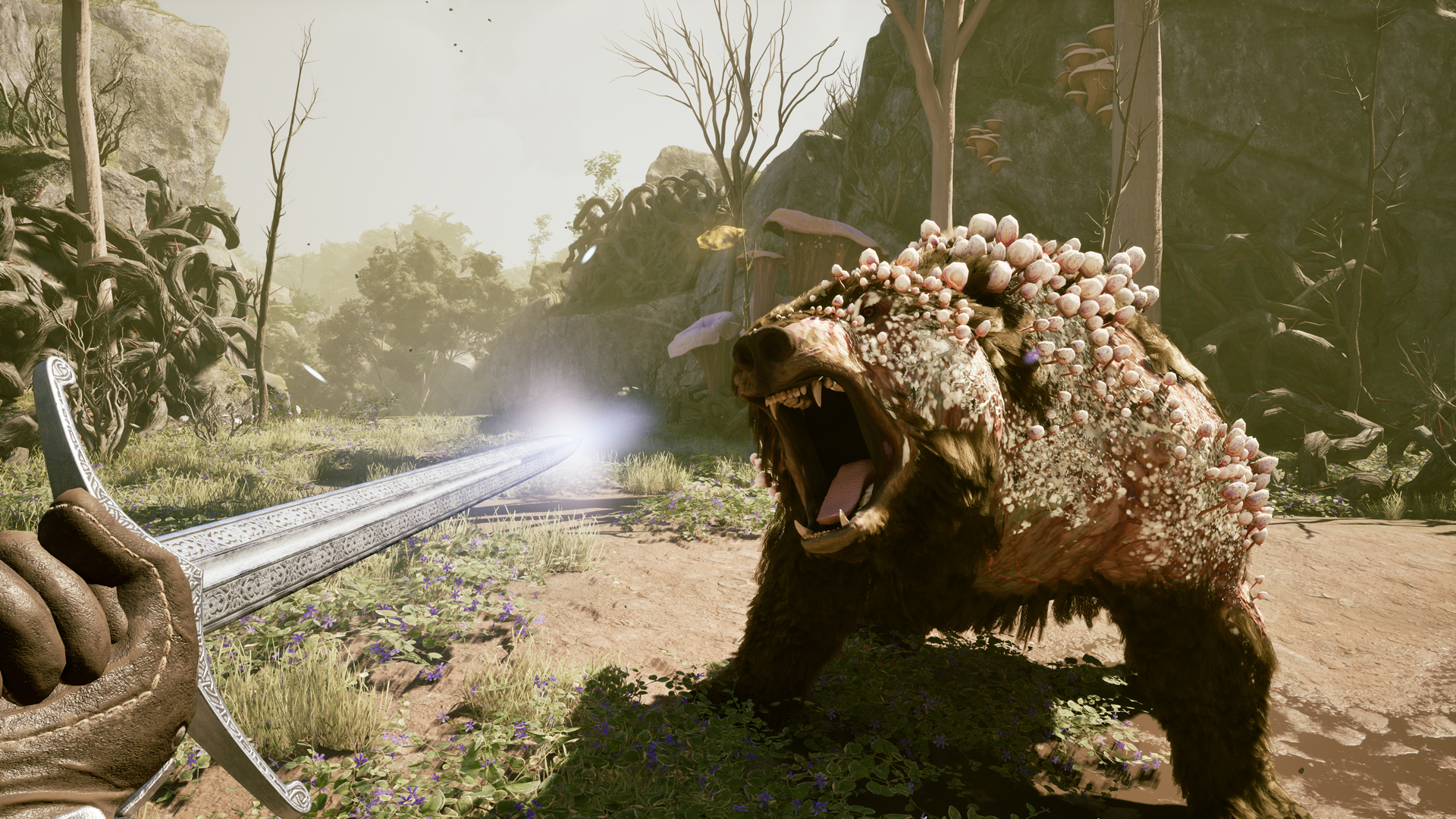
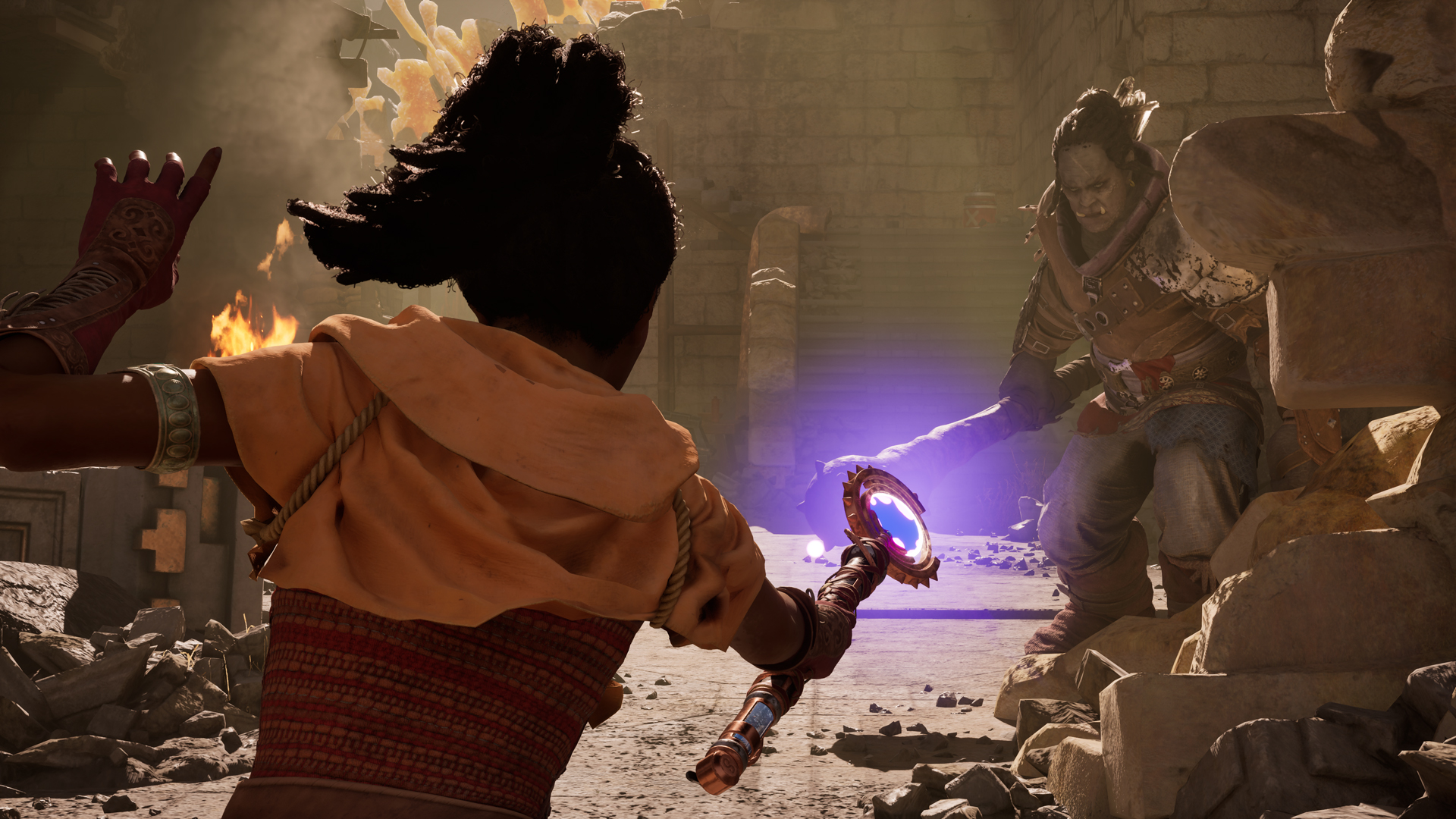
More than choice-driven narrative and combat features, though, the fact that morality likewise underpins so much of Avowed's inner-workings is interesting. From the outside looking in, separating all three seems impossible, which for me only adds to the appeal of getting lost in its world. As a long-standing Fallout: New Vegas player, I loved playing factions off one another, currying favor with some proper deplorable characters in order to get my way, while double-crossing just about everyone so long as it suited my end goals. This is clearly an indictment on my personal playstyle, but it's reassuring to know that Avowed targets similar levels of breadth in depth in the moment-to-moment decision-making that shapes its open-zoned world beyond firefights and storytelling.
"Our approach to choice and consequences is to eschew a black-and-white, good-versus-evil morality scale, where the moral balance of your decision is very obvious – but rather something that feels closer to life, where sometimes it's not obvious or sometimes the right choice feels obvious, but the outcome can be surprising; justified but surprising," says Patel. "So I feel that, as a designer, I enjoy challenging, and as a player, I enjoy being challenged in that regard; where I really get to chew on something complicated and kind of make and explore those decisions in the relatively safe environment of a game."
"And when I think about some of the quests and dilemmas that I still hear players talking about years later – like I think Legion's loyalty quest in Mass Effect 2 is particularly famous for this – it's those choices that people really had to think about," Patel continues. "And that's I think what kind of binds them a little more to their characters, their avatar in the world. And also the characters and companions that they're sharing this journey with, because you're like, 'oh, man, we went through this together'."
Paramo reiterates just how intrinsic those moral choices can be in gameplay terms, from the gear you wear to the abilities and weapons you choose to wield. Where world-building and choice come together most against Obsidian's experience, it seems, is the fact that Avowed builds upon the world of Eora – the same fantastical lands found in the developer's Pillars of Eternity series. In combat, you can leverage familiar spells from the Pillars games, such as Into the Fray to pull characters in different directions, however it is worth noting no prior experience of Eora is required to enjoy yourself in The Living Lands.
"You really don't need to know anything about the previous Pillars games, and you certainly don't need to have played them to enjoy Avowed."
Carrie Patel, Avowed game director
Patel continues: "You really don't need to know anything about the previous Pillars games, and you certainly don't need to have played them to enjoy Avowed. For players who have they're certainly some familiar concepts, bits of world building, and even a few returning characters that they might recognize, but we wanted to make sure that players coming to it for the first time will have a good time."
"There's always a balance there, because you don't want to info-dump on the player just when they're really trying to get their feet wet in the world. But at the same time, you don't want them to feel adrift. So there's a delicate balance between introducing new concepts and pieces of the world to players, doing it in a way that lets them opt in. And you know, for a simple example, ask more questions in a dialogue, if they want to know about it, but also just move on. If they're like, 'Yeah, I get it, like I can put together from the context what this is, and I don't need the details.'"
"There's also a system that our team is working on integrating into Avowed right now that we first had the Tyranny and we also used an Deadfire, which is lore tooltips, where for a particular name or piece of lore, when it comes up in a dialogue, or in a piece of written text, you can kind of hover over it and get the little summary, like, what is The Living Lands? Oh, okay, now I get it, and it doesn't otherwise interrupt the flow of what you're doing."
The vow
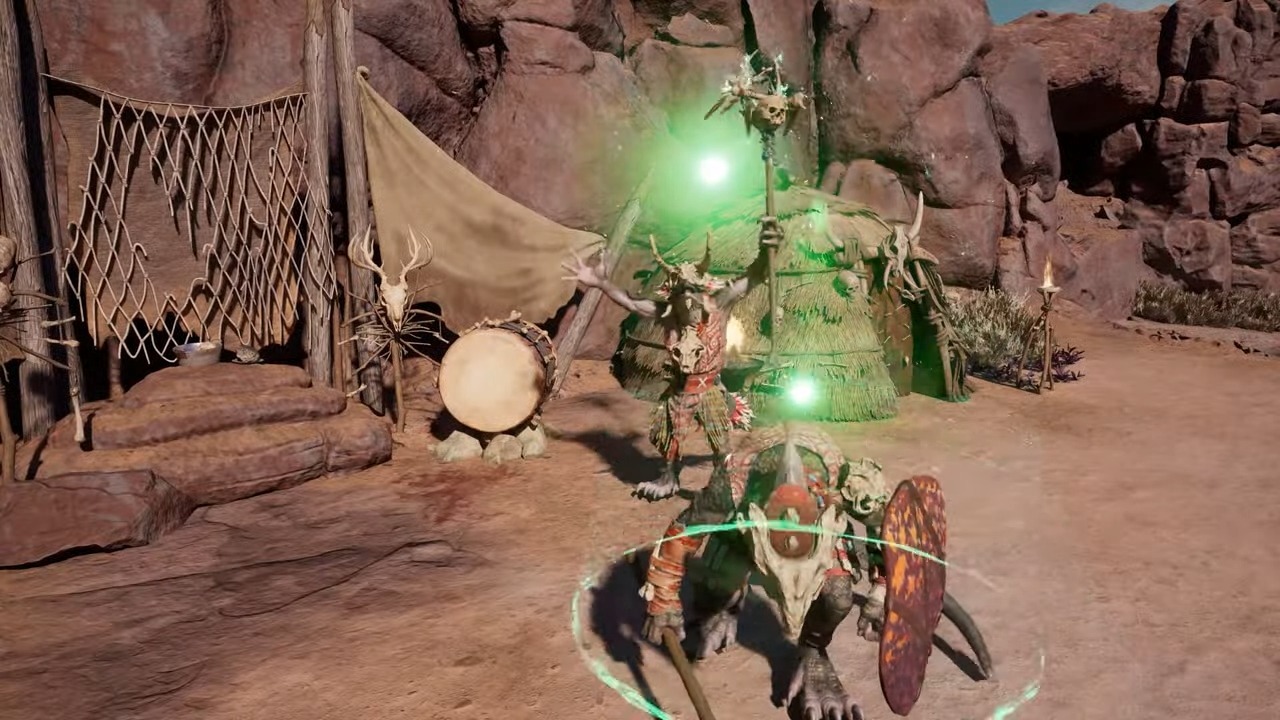
Clearly, Avowed is an ambitious undertaking. It's inspired by its creators' collective wealth of fantastical world-building experience, and it enters the RPG fray at a time when the genre is firing on all cylinders. The game's commitment to putting the player at the center of everything it does is admirable, but the developer knows promises on this side of release mean very little without something of substance backing them up at the other end.
For Patel, the thought of players getting to grips with Avowed's sophisticated combat system while enjoying the freedom of speccing out their characters as they move through the game is what excites her most at this juncture. Leveraging its classless system, Patel expects (and encourages) players to mix-and-match the specifics of their favorite builds in Avowed – be that from a more archetypal standpoint of big swords and heavy shields; or from a more outlandish perspective, such as gun-slinging mages – it's these idiosyncratic variables that she can't wait to see players mess around with first-hand.
For Paramo, being able to show off more to players in the coming months keeps him inspired, as does the thought of responding to feedback and iterating on elements throughout the last stretch of development. At the time of writing, Avowed boasts a tenuous "Fall 2024" release window, and Paramo is keen to continue pushing for greater transparency right up until launch.
And for me? Avowed is, of course, also an Xbox console-exclusive. Which means that if it does get it right, whenever it lands in "Q4 2024", it could be the reason people like myself finally acquire an Xbox Series X console. My gaming laptop might make it over the line in this instance, but as games get incessantly bigger and increasingly resource-heavy, the allure of Game Pass on the couch inevitably becomes harder to ignore. Combine this with everything Avowed is promising this side of release – not least sophisticated player choice across its narrative and combat, a dynamic combat system that bends to the player's whims, and the wealth of experience Obsidian boasts in all of the above – and this choice-driven action-RPG could be one of 2024's standout games. Avowed has all the ingredients to make it work, and Obsidian is more than capable of mixing them in the correct order.
Look out for Part Two of our behind the scenes Avowed coverage on Monday, where we speak to Obsidian about how choice impacts exploration in the upcoming RPG

Joe Donnelly is a sports editor from Glasgow and former features editor at GamesRadar+. A mental health advocate, Joe has written about video games and mental health for The Guardian, New Statesman, VICE, PC Gamer and many more, and believes the interactive nature of video games makes them uniquely placed to educate and inform. His book Checkpoint considers the complex intersections of video games and mental health, and was shortlisted for Scotland's National Book of the Year for non-fiction in 2021. As familiar with the streets of Los Santos as he is the west of Scotland, Joe can often be found living his best and worst lives in GTA Online and its PC role-playing scene.
